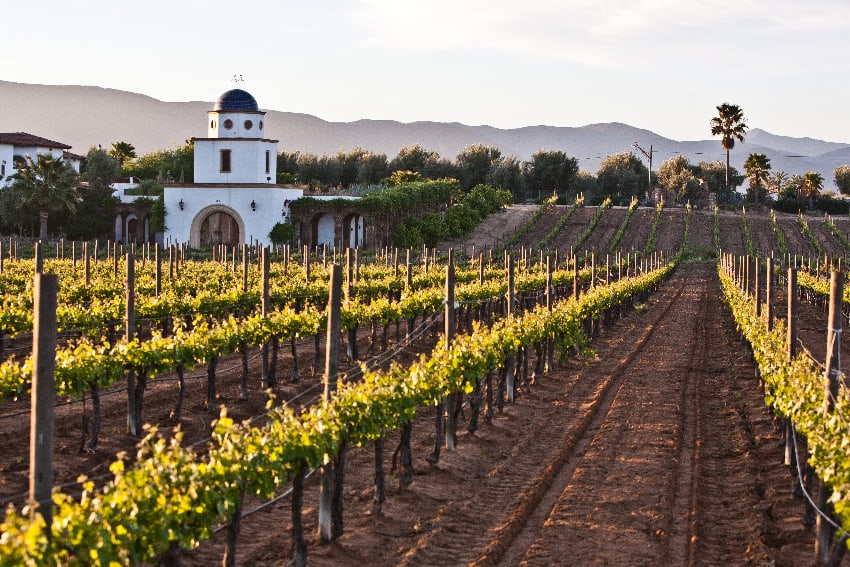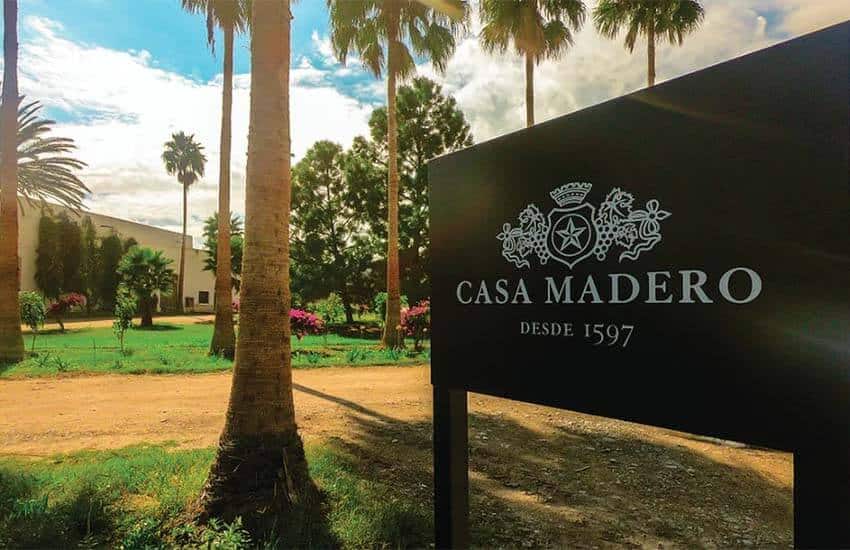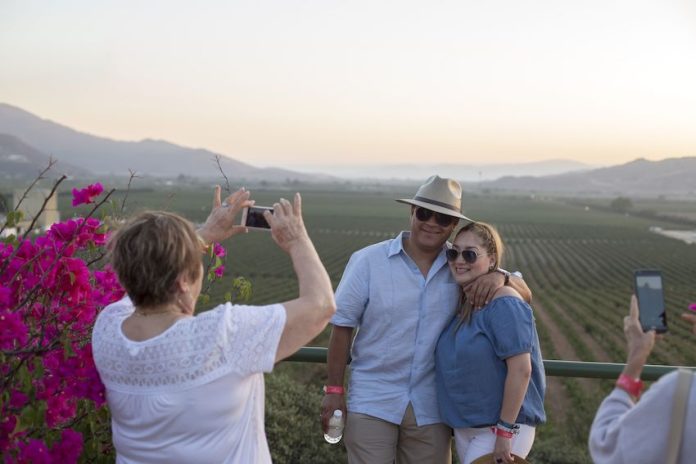Mexico is quickly becoming a top destination for wine tourism, with places like Aguascalientes, Baja California and Guanajuato offering unique tasting experiences in breathtaking settings.
The Mexican Wine Council (CMV), in collaboration with the National Tourism Ministry (Sectur), has put together a list of wine routes across seven states in Mexico to promote the rising visibility of the wine industry and wine tourism in Mexico.

According to the CMV, one in every three wine bottles consumed in Mexico is produced locally and 54% of Mexicans prefer to drink local wines over imported ones.
To learn more about Mexican wine, check out the CMV’s list of 12 Mexican wine routes to try in 2024.
Aguascalientes
Due to its ideal grape-growing climate, Aguascalientes is the second-largest wine-producing state in Mexico.
The state’s Ruta del Vino (Wine Route) is open year-round and offers tastings, guided tours, visits to vineyards and wineries and food pairings at 24 different wineries offering 206 different labels. Visitors can also stop at local producers to sample cheese, beer, honey and other delicacies.

Baja California
Known as the Mexican Tuscany, Baja California is home to one of the most well-known wine regions in the country: Valle de Guadalupe.
Home to over 65 wineries, the Guadalupe Valley represents 95% of national production and the area’s wines have won international awards. Baja California has four wine routes and is also host to wine-related events and festivals throughout the year.
Coahuila
Coahuila has been producing wine for over 400 years, with the Parras Valley standing out thanks to Casa Madero, one of Mexico’s most prestigious wineries. Founded in 1597 as Hacienda San Lorenzo, it is the oldest winery in the Americas.
The Vinos & Dinos route includes a desert and mountain route, in addition to a paleontological site.

Guanajuato
Mainly known for tourist destinations like San Miguel de Allende and Guanajuato city, this state in the Bajío is also a renowned wine region.
Guanajuato’s wine history dates to 1793, when Father of Independence and wine lover Miguel Hidalgo y Costilla taught viticulture to parishioners in San Felipe. Today, the state produces 1.2 million liters of wine per year and ranks as the fourth biggest wine producer in Mexico.
With several award-winning wineries, Guanajuato’s wine route includes vineyards in Guanajuato city, Hidalgo and Comonfort. The city of León, Guanajuato will also host the prestigious Concours Mondial de Bruxelles (CMB) international wine competition from June 7-9 this year, the first time the event has been held in the Americas.
Hidalgo
The state’s first vineyard, El Refugio, offers visitors two wine routes: the Getaway to the Camino Real Among Wine and Cheese and the Toltec Route Among Wine and Cheese.
Hidalgo’s wine route lies along the Camino Real de Tierra Adentro (Royal Inland Road), also known as the Silver Route. This colonial road ran from Mexico City to Santa Fe, New Mexico and covered 2560 kilometers, making it the largest inland commercial route during the Spanish colonial period.

Querétaro
Just two hours northwest of Mexico City, Querétaro is home to the Cheese and Wine Route, with all experiences starting in the Pueblo Mágico of Tequisquiapan.
While Querétaro has produced wine since Spanish colonization, its wine industry really took off in the late 1980s and early 1990s.
Jalisco
Jalisco has expanded its offerings beyond tequila and into wine. The state boasts two wine routes in two distinct regions: the Altos de Jalisco and the southern shore of Lake Chapala. The latter region is characterized by the volcanic soil local vines grow in.
With reports from El Economista, Vine Tour and Uva y Vino
